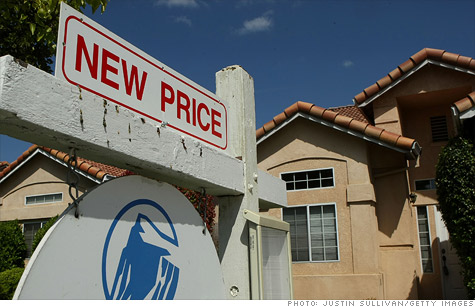
• July 10, 2012 • 8:14am
Quarterly home values in June improved nationally, continuing a positive trend from the spring. National prices rebounded with quarterly and yearly gains of 1.7%, according to Clear Capital, which forecast continued growth through the remainder of the year.
National home prices picked up notable momentum over last month’s marginal gains of 0.1%, the Trukee, Calif.-based data and valuation company said. It predicted additional growth of 2.5% forecasted through the end of the year.
“June home price trends provided further evidence that housing has turned the corner, with the momentum of the recovery picking up speed,” said Alex Villacorta, director of research and analytics at Clear Capital.
Clear Capital uses a rolling quarter measure, which compares the most recent four months to the previous three months. The rolling quarters have no fixed start date and can be used to generate indices as data flows in to reduce multimonth lag time.
The West came in with the highest gains, showing quarter-over-quarter growth of 3.5% — an increase of 0.8% over May and annual price gains of 4.1%. Clear Capital expects the trend to continue through 2012 with an additional 5.75% growth over the next two quarters.
While the recovery generally began in the lower-priced segments, growth spread across all price tiers in the West, which the report calls an “important step in the progression of this recovery.”
In the quarter, low-tier gains in the West hit 3.6% (sales less than $140,000), mid-tier gains reached 3.1% (homes selling between $140,000 and $347,000) and top-tier gains climbed to 3.2%. This led the West to push ahead of the South, the next closest region, by 2%.
The South continued to grow in June, pushing up 1.5% over the rolling quarter, slightly above May’s 1.2% gain.
The Midwest saw the largest increase over last month in quarterly home prices, rising 1.2% compared to May’s quarterly losses of 2%. It was the only region not posting year-over-year gains, with a loss of 0.6%.
Home prices in the Northeast rose 2.3% over the last year. The South experienced a smaller price hike of 1.5% over the last year and during the quarter, an improvement over the annual growth of 0.9% shown in last month’s report.
The top 50 metro markets also posted gains in June, with the large majority of markets seeing quarterly gains and only seven seeing slides. Of those markets that posted losses, only four saw declines larger than 1%.
The report indicates more good news out of Phoenix, which has been showing consistent signs of strength for the past 10 months. Clear Capital reported quarterly growth of 8.7% in Phoenix with annual gains of 20.4%.
Seattle, where prices rose 8.4% over the quarter, could see prices rise 14.4% annually once final numbers of 2012 are in, while Phoenix prices could rise by 10.4% annually.
Atlanta is not positioned to do as well. It sustained the largest declines of all the MSAs. However, the anticipated losses of 3.2% seem mild in comparison to Atlanta’s total declines of 53.5% from peak prices in 2006.
jhuseman@housingwire.com
@JessicaHuseman

![[refinance]](http://si.wsj.net/public/resources/images/MI-BP578_refina_DV_20120617172748.jpg) European Pressphoto AgencyHUD Secretary Shaun Donovan says there is ‘essentially a monopoly on refinancings’ among the largest banks.
European Pressphoto AgencyHUD Secretary Shaun Donovan says there is ‘essentially a monopoly on refinancings’ among the largest banks.
![[REFINANCE]](http://si.wsj.net/public/resources/images/MI-BP567_REFINA_NS_20120617174809.jpg)



![[SB10001424052702303640104577438521856489182]](http://s.wsj.net/public/resources/images/OB-TE231_0601BC_D_20120531130018.jpg)

![[AOT]](http://si.wsj.net/public/resources/images/MI-BP263_AOT_NS_20120529174504.jpg)

© 2013 The Peral Group